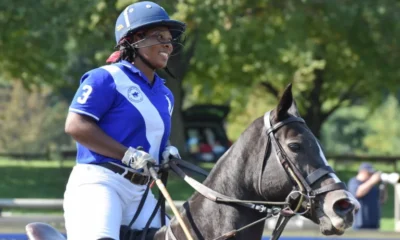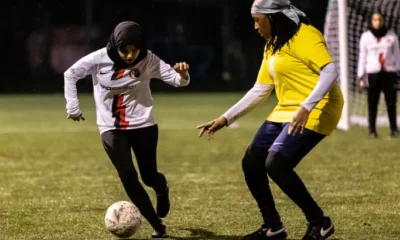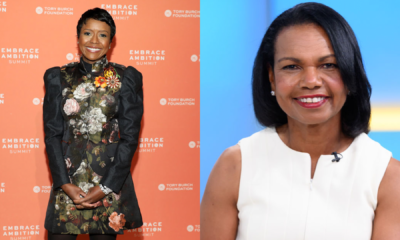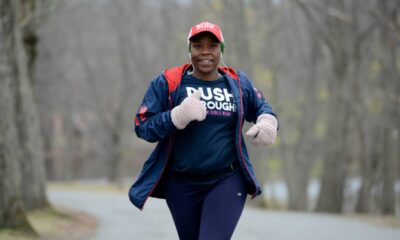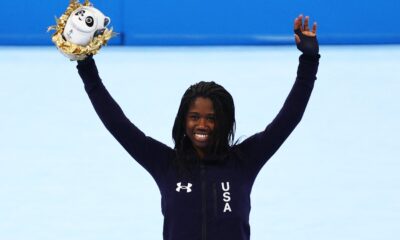Black Women in Sports
The 2018 Winter Olympics Welcomes Its First African Woman Skeleton Racer Simidele Adeagbo
After reading about the trio of Nigerian women set to make history as the country’s first bobsled team in the 2018 Winter Olympics, South African-based Simidele Adeagbo instantly became inspired.
A star athlete, who has already proven her success in track and field, Adeagbo knew it was time to trade in the track spikes for ice spikes. So she reached out to the Nigerian bobsled team in hopes of becoming their fourth team member. When they informed her their team was already complete, Adeagbo decided to chart a solo journey on the ice as a skeleton slider.
“It actually wasn’t quite the right timing, in terms of a bobsled perspective, for me to integrate into the team,” Adeagbo told ESSENCE. “[When] I was in the team camp back in September [2017], I got to know about skeleton. I thought it could still be a way that I could use my talents to serve my country, so I ended up going that path.”
But this wasn’t Adeagbo’s first foray into winter sports. As a kid growing up in Canada, you could always find Adeagbo somewhere near the ice.
“I spent third through seventh grade in Canada, and part of growing up in Canada is access to winter sports,” Adeagbo said. “I never heard of skeleton at that point in time. But the culture in Canada is you go sledding, skiing and ice skating when it gets cold.”
Fast forward 20-plus years later, and the 36-year-old Olympic hopeful will be the first-ever African female to represent her native country in the skeleton event in PyeongChang, South Korea. And to think, it only took four months to master the physically-demanding sport.
“I knew that my goal was really to make it to the 2018 Olympic Games and become the first female African athlete and the first Black female to be represented in the sport of skeleton,” Adeagbo recalled. “I really took a very unconventional path and looked to see what was possible in four months. And so that’s what I really focused on and worked hard to accomplish over the last few months.”
During the four months, Adeagbo had a little help perfecting her form on the tiny sled. No, not from a trainer—from her pre-race Nigerian-influenced playlist. She credited Afrobeat music as part of her training and motivation.
“When I’m getting ready and warming up for a race, I like to listen to some Afro hip-hop,” Adeagbo explained. “There’s just something about the beats that just get me pumped up and also remind me of my connection back to my country. It helps me loosen up and relax a little bit before I plunge down an ice track at 120 kilometers per hour. [It’s] probably the first time Afrobeats have ever made it on a sled.”
As far as what it means to be part of such a historic moment for African female athletes at this year’s Winter Olympics, Adeagbo stated: “I just find it to be an honor to be a pioneer, in terms of expanding the sport in the global community around the sport. Anytime I walk into a room or on a track, I know …
Please read original article- The 2018 Winter Olympics Welcomes Its First African Woman Skeleton Racer Simidele Adeagbo




